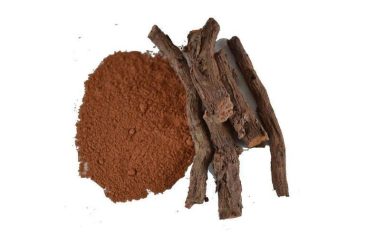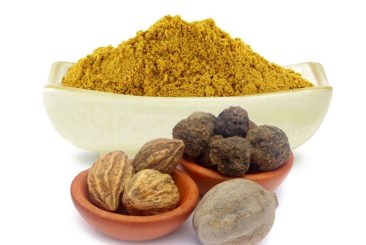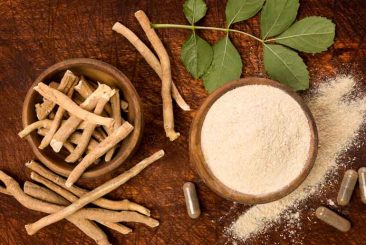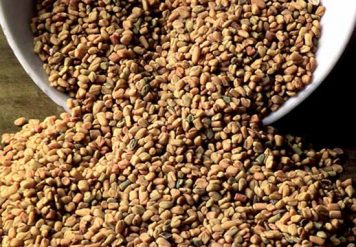Detoxification is a popular concept in various traditional medicine systems, including Ayurveda. Ayurveda emphasizes the importance of balancing the body and mind to maintain overall well-being. While it’s essential to note that the body has its natural detoxification mechanisms through organs like the liver and kidneys, incorporating certain Ayurvedic herbs may support these processes. Keep in mind that individual responses to herbs can vary, and it’s advisable to consult with a healthcare professional or Ayurvedic practitioner before making significant changes to your diet or lifestyle.
1. Manjistha:

Manjistha, a prominent Ayurvedic Herb, is recognized for its multifaceted benefits in promoting overall skin health. With its potent blood-purifying properties, Manjistha is believed to effectively cleanse the blood, aiding in the removal of toxins and impurities. This cleansing action contributes to its reputation for alleviating various skin problems, including acne, eczema, and psoriasis. The herb’s anti-inflammatory qualities make it valuable in reducing skin inflammation, and its anti-allergic properties suggest potential benefits in treating skin allergies. Additionally, Manjistha is known to support the lymphatic system, playing a role in detoxification and immune function. While generally considered safe, it is recommended to seek guidance from an Ayurvedic practitioner or healthcare professional before incorporating Manjistha into one’s routine, especially for those with existing health conditions or taking medications, ensuring a personalized and appropriate approach to its use.
2. Guduchi:

Guduchi, also known as Tinospora cordifolia, is a versatile Ayurvedic Herb with a range of health benefits. One of its key roles is in promoting liver health by assisting in the detoxification process and supporting the liver’s natural functions. The herb is recognized for its potent anti-inflammatory properties, making it beneficial in managing various inflammatory conditions within the body. Additionally, Guduchi is known for its ability to balance the pitta dosha in Ayurveda, which represents the heat or fire energy in the body. By helping to regulate pitta, Guduchi contributes to overall harmony in the body’s energy systems. Incorporating Guduchi into one’s wellness routine, whether through supplements or as part of a balanced diet, may offer support for liver health, inflammation management, and the maintenance of a balanced and harmonious internal environment. As with any Ayurvedic Herbs, it’s advisable to consult with an Ayurvedic practitioner or healthcare professional to ensure its suitability for individual health needs and conditions.
3. Chitrak:

Chitrak, scientifically known as Plumbago zeylanica, is a versatile Ayurvedic Herb celebrated for its manifold health benefits. Primarily, it is renowned for its role in enhancing overall metabolism by stimulating the digestive fire, aiding digestion, and promoting metabolic processes. Beyond its metabolic benefits, Chitrak is traditionally employed in Ayurvedic treatments for various conditions. It is believed to be effective in treating migraines, possibly due to its anti-inflammatory and analgesic properties. Additionally, Chitrak is utilized for managing jaundice, skin diseases, and urinary calculi, showcasing its diverse therapeutic applications. Its ability to boost digestion contributes to its broader impact on overall digestive health. As with any herbal remedy, it is recommended to seek guidance from an Ayurvedic practitioner or healthcare professional to ensure its appropriate and safe use, especially considering individual health conditions and medications.
4. Neem:

Neem, scientifically known as Azadirachta indica, is one of the versatile Ayurvedic Herbs renowned for its diverse health benefits. Notably, Neem has demonstrated the ability to lower blood sugar levels, making it beneficial for individuals managing diabetes. The herb is celebrated for its dual action in promoting blood and liver health, acting as a potent blood purifier and supporting liver detoxification processes. Neem’s antimicrobial properties make it effective in treating fungal infections, while its application nourishes the skin, addressing various dermatological concerns. Furthermore, Neem is recognized for its immune-boosting capabilities, contributing to overall immune system strength. As with any herbal remedy, it is advisable to consult with a healthcare professional or Ayurvedic practitioner to ensure the appropriate and safe incorporation of Neem into one’s health regimen, considering individual health conditions and medications.
5. Triphala:

Triphala is a renowned Ayurvedic Herb, consisting of three fruits: haritaki, bibhitaki, and amla (Indian gooseberry). This synergistic blend is celebrated for its potent cleansing and detoxifying properties. Triphala is believed to be particularly effective in promoting digestive health by supporting digestion, absorption, and elimination processes. Haritaki is known for its laxative properties, bibhitaki for its role in balancing the three doshas, and amla for its rich vitamin C content and antioxidant properties. Together, these three ingredients work synergistically to detoxify the body, enhance gastrointestinal health, and contribute to overall well-being. Triphala is often used in Ayurvedic practices to address various digestive concerns and promote a balanced and healthy system. As with any herbal remedy, it’s advisable to consult with an Ayurvedic practitioner or healthcare professional for personalized guidance and dosage recommendations based on individual health needs.
6. Ashwagandha:

Ayurvedic Herbs like Ashwagandha known for its adaptogenic properties, which help the body cope with stress and promote overall well-being. In addition to its adaptogenic effects, ashwagandha has been recognized for its potential role in supporting the body’s natural detoxification processes. Detoxification involves the removal of toxins and waste products from the body, often facilitated by organs like the liver and kidneys. Ashwagandha’s bioactive compounds, including withanolides, have been studied for their antioxidant and anti-inflammatory properties, which may contribute to the herb’s ability to support detoxification pathways. By promoting a balanced and resilient physiological response to stress, ashwagandha indirectly aids the body in maintaining optimal functioning, including detoxification. As with any herbal supplement, it’s advisable to consult with a healthcare professional or Ayurvedic practitioner to determine the appropriate dosage and usage based on individual health needs and conditions.
7. Fenugreek:

Ayurvedic Herbs like fenugreek, is recognized for its multifaceted health benefits. Primarily celebrated for its digestive properties, fenugreek seeds are believed to aid in digestion, promoting gastrointestinal health and regularity. Additionally, the herb is associated with detoxification in Ayurveda, contributing to the elimination of toxins and supporting the body’s cleansing processes. Fenugreek is also acknowledged for its anti-inflammatory properties, potentially assisting in managing inflammatory conditions. Whether incorporated into culinary dishes or consumed as a supplement, fenugreek offers a versatile approach to enhancing digestion, promoting detoxification, and addressing inflammatory concerns. As with any herbal remedy, consulting with a healthcare professional or Ayurvedic practitioner is advisable for personalized guidance based on individual health considerations.
Disclaimer:
The information contained in this article is for educational and informational purposes only and is not intended as a health advice. We would ask you to consult a qualified professional or medical expert to gain additional knowledge before you choose to consume any product or perform any exercise.








